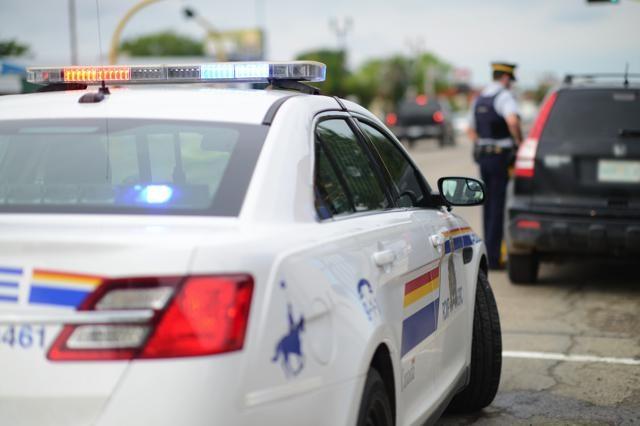Members of the Combined Traffic Services Saskatchewan (CTSS) were in the Weyburn area on Friday evening for a project focussing on intersection enforcement. This included members from Weyburn Police Service along with Estevan, Weyburn and Carlyle RCMP, all part of the CTSS.
Members were targeting drivers at several controlled intersections around the city looking for persons not wearing seatbelts, holding cell phones in their hands and anyone who either rolled through stop signs or failed to come to a complete stop when turning right at a red light or stop sign.
Nine drivers were stopped and issued either a ticket or warning for disobeying a stop sign or red light. There were also tickets issued for driving with no registration, failing to move right for an emergency vehicle, tinted headlights and or tail lights as well as a three-day driving suspension.
Slowing down is not enough. If a driver was thinking "No Cop, No Stop", they quite likely will find themselves on the receiving end of a $230 fine and demerit points on their license. The largest number of motor vehicle and pedestrian collisions occur at intersections. A solid or flashing red light means stop. A green light does not simply mean go, rather it means, “proceed when safe to do so.”
There were two drug recognition experts working, who can conduct field sobriety testing for both alcohol and drugs by directing an individual to perform a number of psycho-motor tests and measure involuntary responses to certain visual stimuli. There were two breath demands made to drivers to provide samples into an alcohol screening device. Both drivers passed and were allowed to carry on.
Although it was not called into use, it was also an opportunity for one of the traffic members who has been trained to operate and was carrying the new “DRAEGER 5000” oral swab drug recognition equipment.
This is an approved device under the Criminal Code for detecting impairment by drug. Under the new cannabis laws, if charged for operating a motor vehicle with a THC level from 2 nanograms but less than 5 nanograms per ml of blood, this is a straight summary offence. If charged for operating a motor vehicle with a THC level of 5 nanograms per ml of blood or more, this will be a hybrid offence. It is a criminal offence to refuse the demand made by a peace officer to provide a sample.




